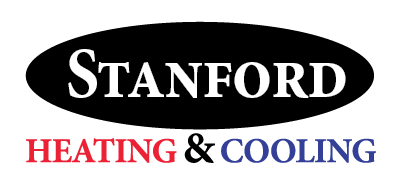
We spend lots of time in our homes. As a matter of fact, the Environmental Protection Agency (EPA) has determined being inside accounts for 90% of our schedule. Having said that, the EPA also has found your indoor air can be three to five times more polluted than outdoors.
That’s since our homes are tightly sealed to increase energy efficiency. While this is good for your energy bills, it’s not so good if you’re a part of the 40% of the population with respiratory allergies.
When outside ventilation is restricted, pollutants like dust and volatile organic compounds (VOCs) may get captured. As a result, these pollutants may irritate your allergies.
You can enhance your indoor air quality with fresh air and regular cleaning and vacuuming. But if you’re still struggling with symptoms when you’re at your house, an air purifier may be able to provide relief.
While it can’t remove pollutants that have gotten trapped in your furnishings or carpeting, it might help freshen the air traveling throughout your residence.
And air purification has also been scientifically proven to help lessen some allergic symptoms, according to the American College of Allergy, Asthma and Immunology. It could also be useful if you or a family member has a lung condition, such as emphysema or COPD.
There are two kinds, a portable air purifier or a whole-home air purifier. We’ll examine the advantages so you can determine what’s appropriate for your home.
Whole-House Air Purifier vs. Portable Air Purifiers
A portable air purifier is for a single room. A whole-house air purifier accompanies your home comfort unit to clean your full home. Some types can work by themselves when your home comfort equipment isn’t operating.
What’s the Best Air Purifier for Allergies?
Seek a purifier with a High Efficiency Particulate Air (HEPA) filter. HEPA filters are used in hospitals and offer the best filtration you can find, as they eliminate 99.97% of particles in the air.
HEPA filters are even more useful when installed with an ultraviolet (UV) germicidal light. This powerful mixture can eliminate dust, dander, pollen and mold, all of which are standard allergens. For the best in air purification, consider equipment that also has a carbon-based filter to eliminate household vapors.
Avoid getting an air purifier that creates ozone, which is the top element in smog. The EPA advises ozone could worsen respiratory troubles, even when emitted at small settings.
The Allergy and Asthma Foundation of America has made a list of questions to ask when purchasing an air purifier.
- What can this purifier extract from the air? What doesn’t it take out?
- What’s its clean air delivery rate? (A bigger amount means air will be freshened faster.)
- How frequently does the filter or UV bulb need to be replaced]? Can I complete that on my own?
- How much do replacement filters or bulbs cost?
How to Lessen Seasonal Allergy Symptoms
Want to get the {top|most excellent|best] outcome from your new air purification system? The Mayo Clinic suggests doing other measures to decrease your exposure to things that can trigger seasonal allergies.
- Stay inside and keep windows and doors shut when pollen counts are elevated.
- Have someone else trim the lawn or pull weeds, since this work can aggravate symptoms. If you must do this work alone, you might want to consider trying a pollen mask. You should also rinse off without delay and change your clothes once you’re finished.
- Avoid stringing up laundry outside your home.
- Turn on the AC while at your house or while you’re on the road. Consider adding a high efficiency air filter in your house’s heating and cooling unit.
- Balance your home’s humidity percentage with a whole-house dehumidifier.
- Hardwood, tile or linoleum are the ideal flooring kinds for reducing indoor allergens. If your house has carpet, use a HEPA filter on your vacuum cleaner.
Let Our Pros Manage Your Indoor Air Quality Requirements
Prepared to move forward with installing a whole-house air purifier? Give our specialists a call at 812-825-8695 or contact us online to get an appointment. We’ll help you find the ideal unit for your house and budget.

